My last post introduced what I think are the most common views that Christians have on Hell (broadly defined as the fate of those who aren’t saved in this life). This week I’m going to look at one of the reasons why I think Hell needs to be reformed, and that is because current notions of Hell don’t seem to fit well in the Bible’s overall story or metanarrative.
There are a lot of themes that could be included but I’ll walk us through a simple summary of the Bible that focuses on the relationship between God and people:
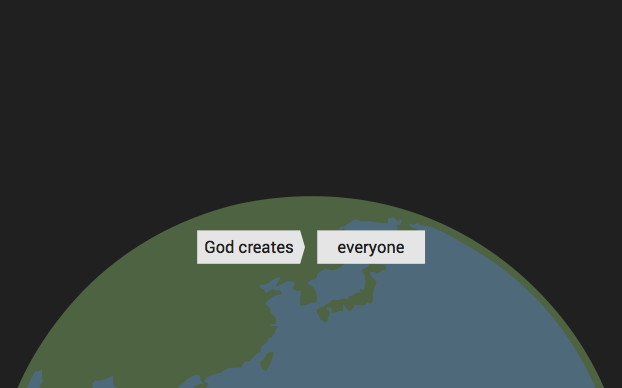
We start with the perfect, eternal God who creates everyone.
For everything was created by Him,
in heaven and on earth,
the visible and the invisible,
whether thrones or dominions
or rulers or authorities—
all things have been created through Him and for Him.Colossians 1:16, HCSB
Sadly, everyone deliberately puts themselves first at the expense of others. This unloving attitude is a core aspect of sin. Unchecked, I think we become increasingly proud and narcissistic, while pushing away the Source of life, growth, vitality, joy and hope. Furthermore, the attitude and behaviour is a rebellion against God and His desire for the way things should be (wholeheartedly enjoying and praising Him—together, forever!). The climax of this rebellion was executing Jesus on a Roman instrument of torture, a wooden cross.
For everyone has sinned; we all fall short of God’s glorious standard.
Romans 3:23, NLT
If we say, “We have no sin,” we are deceiving ourselves, and the truth is not in us.
1 John 1:8, HCSB
I think sin/rebellion becomes self (and other) destructive—spiritually, mentally and physically. Our physical death seems to be a reflection (a consequence, a form of punishment1 ) of this spiritual deadness/broken relationship.
When Adam sinned, sin entered the world. Adam’s sin brought death, so death spread to everyone, for everyone sinned.
Romans 5:12, NLT
Jesus’ death on the cross thankfully changes things2, including demonstrating God’s forgiveness of our rebellion and drawing people to repent and believe in Him.
We know what real love is because Jesus gave up his life for us. So we also ought to give up our lives for our brothers and sisters.
1 John 3:16, NLT
Or do you despise the riches of His kindness, restraint, and patience, not recognizing that God’s kindness is intended to lead you to repentance?
Romans 2:4, HCSB
This means people are reconciled to God3.
For if, while we were enemies, we were reconciled to God through the death of His Son, then how much more, having been reconciled, will we be saved by His life!
Romans 5:10, HCSB
Although it would be nice to unpack each step a lot more, so far hopefully most Christians would be more or less in agreement. However, a major disagreement arises about the fate of people who don’t repent and believe in this life. Those people, according to many Christians, aren’t saved at this point, nor can they be saved at any later time.
Next week, in part two of this mini-series, I’ll try to make a case for why I think there is actually an amazing symmetry in Bible’s story, that the “people” in the last two steps of this flowchart are actually the “everyone” in the first three steps!
1. However, our current physical limitations, particularly death, should shatter our delusion that we are God and act as a limitation on the amount of evil (and self destruction) we can commit. In that sense, both are merciful and mean that the road to restoration is shorter.
2. Many books have been written on what happened on the cross and how we should understand the Atonement but Atonement Metaphors and Animated Explanation of Sacrifice and Atonement are helpful starting points.
3. We are also reconciled to each other – see Top 7 Bible Verses About Reconciliation.

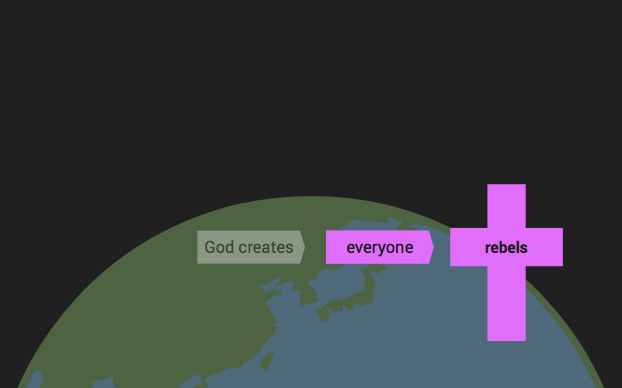
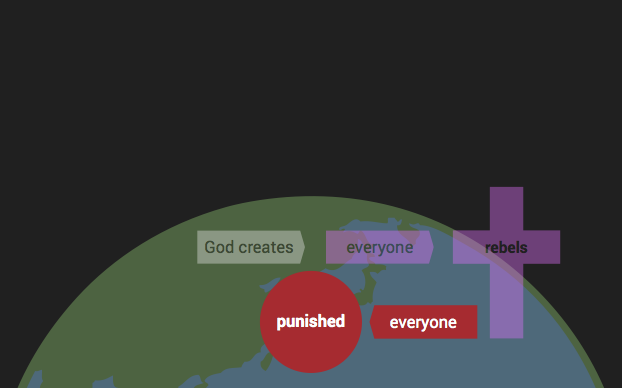
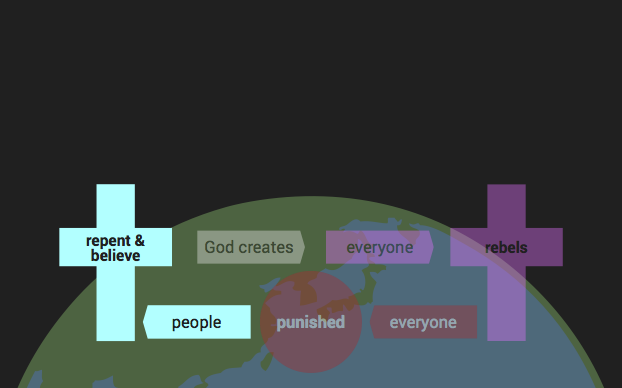
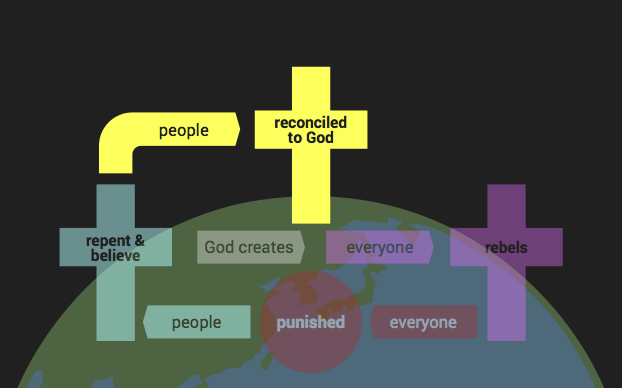
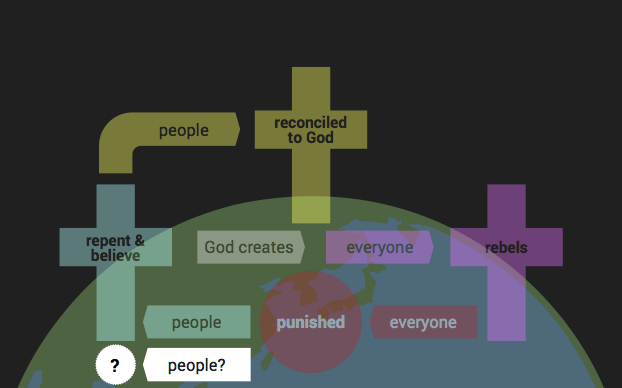
One thought on “The Bible’s Overall Story – The Three Crosses – Part 1”